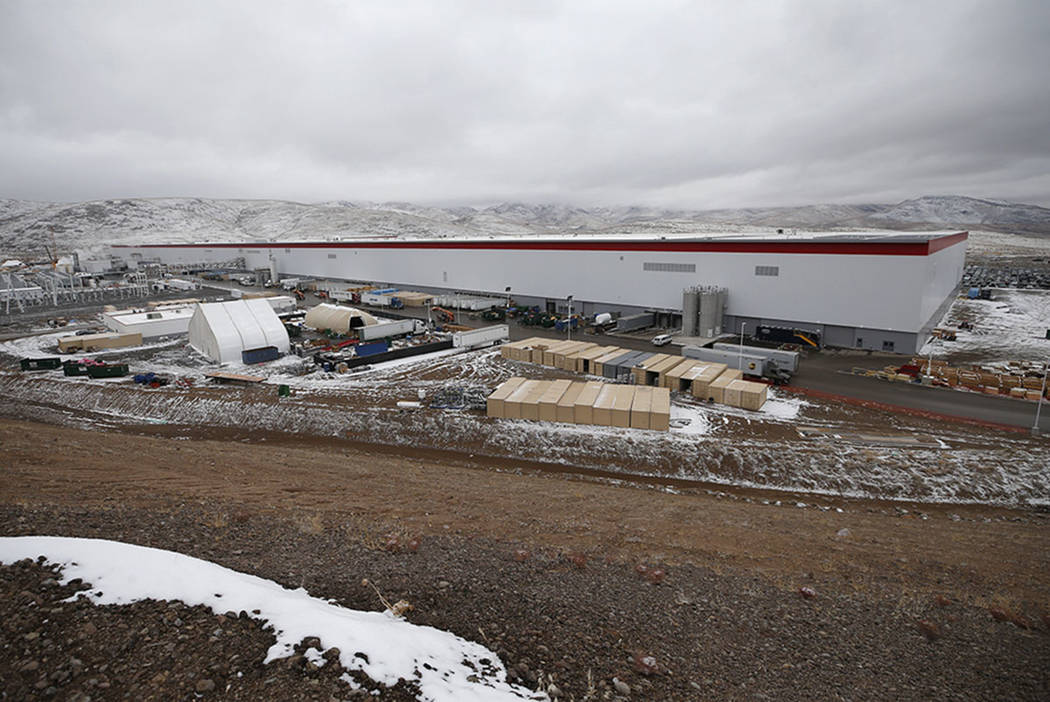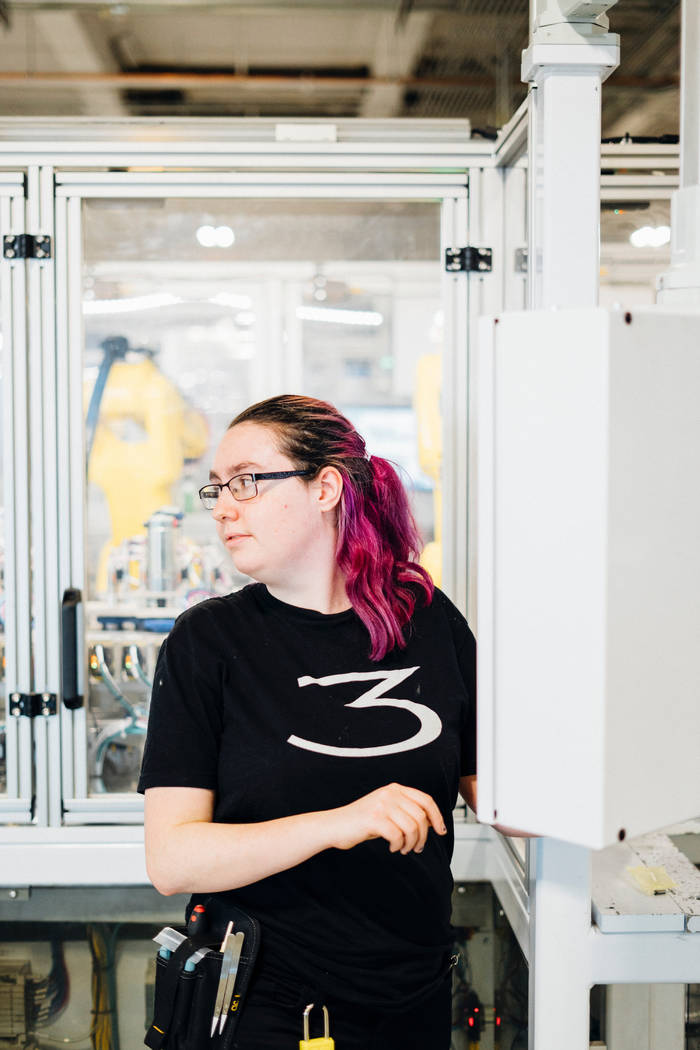Tesla reaches out to Nevada high school grads with job opportunities


As Tesla expands its Gigafactory 1 in Sparks, it’s putting Nevada high school graduates to work on its assembly lines.
“The thought was: As we grow from a small team out in Northern Nevada to thousands of employees, how do we build sustainable pipelines,” Chris Reilly, head of workforce development and education programs at Tesla, said Wednesday.
The answer was a pilot program started in 2017, when Tesla sent 13 recent high school grads to work on manufacturing lines at the Gigafactory. The pilot was a success, Reilly said.
“The managers reached out and said ‘How fast can we grow this?’”
As the program enters its third year, Reilly and his team are searching for 50 to 60 students to join Tesla’s manufacturing and development program. In 2018, Tesla selected 54 Nevada students.
Tesla hired an additional 30 Nevada students last year through the Jobs for America’s Graduates program, which works with low-income high school students who are struggling or failing in school.
Jocelyn Guevara, a 17-year-old senior at Las Vegas High School, said she gave up her theater elective to join the JAG program as a sophomore.
“I think it’s really interesting how the experience is being made available to us,” Guevara said at an informational session hosted at her school. “These are the cars of the future.”
Guevara said she’s already got a job, thanks to the resume-building and personal development tools she learned from JAG, but is interested in joining the apprenticeship program and going to school at University of Nevada, Reno.
“I’m really grateful,” she said. “I see success in my future with this company and this program.”
Students who apply for the apprenticeship tour the Gigafactory as a group of juniors and seniors. After the tour, the group splits up, and juniors take resume-writing workshops while seniors are interviewed, Reilly said.
When graduates are selected, they move into housing in Reno that Tesla has reserved at a pre-negotiated rate. They work full-time making about $17 per hour at the factory while taking a 20-credit apprenticeship course at Truckee Meadows Community College, Reilly said.
Reilly said the graduates are full-time employees who get full benefits as well as equity in the company.
Students who don’t have vehicles can catch a shuttle from their apartment complex to the factory, where they work three 12-hour shifts alternating with four 10-hour shifts each week. Graduates work on assembly lines to build batteries and electric motors for Tesla’s electric cars and energy storage products.
Graduates in the program also take personal development classes, which include financial and career development workshops.
Reilly said the apprenticeship was inspired by vocational programs at the Southeast Career Technical Academy in Las Vegas. During a tour of the school, Reilly saw kids learning about and building basic robotics systems.
“I’ll never forget leaving that school and saying, ‘We need a program,’ ” he said.
After the two-year apprenticeship, there’s no guarantee that kids will keep their jobs at the factory, but Reilly said several students from previous years already have been promoted.
“We’ve built a framework that can be applied to other industries,” he said, “and we’re excited about sharing that out.”
Tesla also offers a program that partners with University of Nevada, Las Vegas engineering students and lets them work at the factory part-time while they train to be technicians — the workers who maintain and troubleshoot production robots.
“Overall we’ve seen a continuous increase in interest,” Reilly said.
Tesla has invested $37.5 million into Nevada schools to develop technology programs including robotics, cybersecurity and computer science, he said.
“The grant from Tesla is a game changer,” said Kerry Larnerd, director of career and technology education for the Clark County School District. “It’s getting us into the world our kids live in.”
She said that in a district where many families can’t afford to put their kids through college, technology programs can give them hands-on experience and skill sets they can use to further their own educations.
“They may not want to get a four-year degree, but they can keep growing in an industry that won’t require that four-year degree or will give them the opportunity to pursue one later,” she said.
Technology programs in Clark County schools are growing as fast as the schools’ infrastructure can support them, Larnerd said.
“What we’re putting in kids’ hands these days is different from anything you’ve ever seen,” she said.
Tesla’s Gigafactory 1 is about 30 percent complete with 5.4 million square feet of production space, and will eventually grow into a 100-acre complex with 15.5 million square feet of production space, Reilly said.
Contact Max Michor at mmichor@reviewjournal.com or 702-383-0365. Follow @MaxMichor on Twitter.













